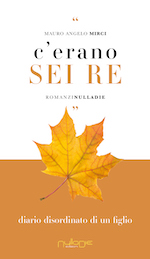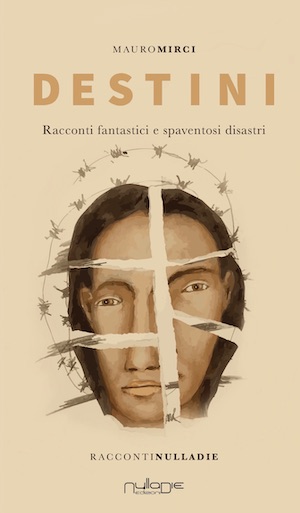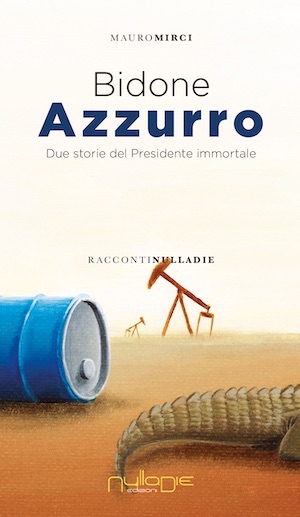di Marco Scalabrino
THE NIPMUCK TRAIL
(di Tom Hubbard)
He who guides others better than himself
Finds in his wanderings a sore enjoyment.
It seems he parts from those who respect him and even love him,
As from those who despise him; where is the difference?
He is the silent scout, his gestures seen from afar
Through the barring branches of the forest of centuries.
And could it be, even now,
He is visible still, at the rise and turn of the path,
At the service of his sometime followers?
I praise those, of whatever nation,
Who have joined the dance of the sun as it patches itself down into the stream,
Who have shed the worn unnecessary letter upon the sedge:
– Even such was she, master of all the arts
Learned in the open, a woman calling and loving:
Oh pearl, oh grace, what man could hold you and then retreat? 1
We always fail them. They barely show the hurt.
But I have tasted the sweet scented tears seeping from that rock,
And its unhealing fissure that was perhaps worshipped here;
By the rude bridge that links two ends of this unending path,
I have looked tenderly at the solitary poppy among the reeds
As at my small inscrutable son at the other side of the ocean.
This, the trail of the Nipmuck tribe,
Is their ancient ground of my New World.
My nation scouted out theirs,
Scouted and scalped.
And have I not also heard
How a hundred years ago, far south and west,
Captive Geronimo learned our counter arts,
Sold photographs of himself for cents to tourists;
Today he’d run a casino, donate to charity,
Field accusations of unfair competition
From the everly-blonded New York millionaires.
Yet here, I have joined a sadly welcoming dance of ghosts,
Winding through the elements. There is a brief bitter love between us,
That disperses in dust and smoke even as I wander on.
So must I strip down at the bankside as to a mingling death and birth:
Oh lovely Indian water, we flow nakedly together.
1 [See Nathaniel Hawthorne, The Scarlet Letter.]
LA PISTA DEI NIPMUCK
di Tom Hubbard.
(Versione in Italiano di Marco Scalabrino)
Chi guida gli altri meglio di come guida se stesso
trova nel suo peregrinare un dolente godimento.
Egli sembra separarsi da coloro che lo rispettano e lo amano
così come da coloro che lo disprezzano; dov’è la differenza?
È l’esploratore taciturno, i suoi gesti
filtrano attraverso i fitti rami della foresta dei secoli.
E potrebbe essere
che egli sia tuttora visibile, ad ogni piè sospinto del sentiero,
al servizio dei suoi seguaci di un tempo?
Io elogio quelli, di qualsiasi nazione,
che hanno raggiunto la danza del sole mentre esso infrange la sua luce nel sottobosco,
che hanno sparso l’esausta, superflua parola sul falasco:
– Proprio come era lei, padrona di tutte le arti
imparate all’aperto, una donna che ama e declama:
Oh perla, oh grazia, quale uomo potrebbe possederti e dopo abbandonarti? 2
Noi li tradiamo ognora. Loro mostrano con riserbo la ferita.
Ma io ho assaggiato le dolci inebrianti lacrime che sgorgano da quella roccia,
la fenditura giammai sanata che forse lì fu venerata;
presso il rudimentale ponte che collega i due estremi di questo passo senza fine,
io ho guardato teneramente al papavero solitario tra le canne
come fosse il mio piccolo inscrutabile figlio all’altro lato dell’oceano.
Questa, la pista della tribù dei Nipmuck,
è il loro antico suolo del mio Nuovo Mondo.
La mia nazione s’è fatta beffe della loro,
l’ha imbrogliata e derubata.
Sappiamo tutti
di come cento anni fa, nel lontano Sud Ovest,
il prigioniero Geronimo, fatte sue le nostre controverse arti,
fu ridotto a vendere foto di se stesso ai turisti per quattro soldi.
Oggidì egli dirigerebbe un casinò e farebbe beneficenza:
confuterebbe le accuse di impari competizione
alle bellone bionde che si strusciano ai milionari di New York.
Ma qui, io mi sono unito a una triste danza di benvenuto di fantasmi
che fischiano tra gli elementi. C’è un breve amaro amore tra noi,
che si disperde nella polvere e nel fumo persino mentre continuo a vagabondare.
Così mi spoglio, giù all’angolo della banca, in una mistura di morte e di vita:
oh fresca acqua indiana, noi fluiamo puri insieme.
2 Vedasi Nathaniel Hawthorne, La Lettera Scarlatta









